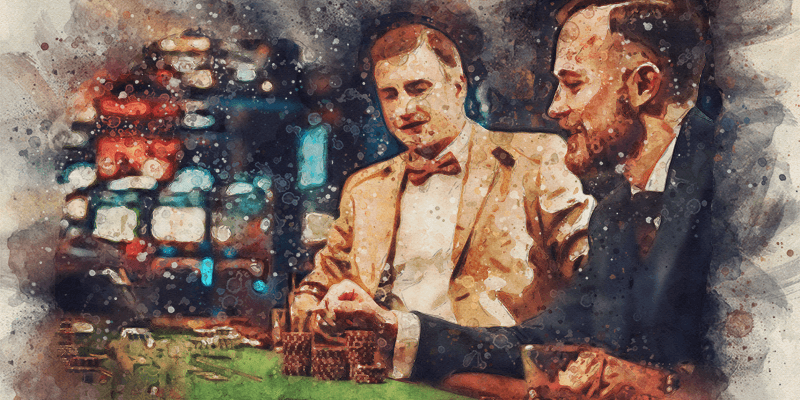With the digital realm breathing fresh life into classic tales, Netflix has once again outshines itself, this time by delving into the enchanting universe of Roald Dahl. Having recently watched their rendition of “The Wonderful World of Henry Sugar,” I was transported into a world woven with mystique, introspection, and the ever-persistent question of human morality. Dahl’s storytelling prowess, combined with Netflix’s visual artistry, promises an enthralling journey for both fans of the original tale and newcomers alike. Join me as we venture deeper into the nuances and layers of this captivating narrative, examining its relevance and resonance in today’s world.
In Roald Dahl’s intriguing tale, “The Wonderful World of Henry Sugar,” we are presented with an exploration of human nature, the depths of greed, and the unexpected moments that can redefine one’s understanding of true value. At its core, this tale is not just about the miraculous power of sight without eyes, but about the transformation of a man’s character when faced with the vast spectrum of human experiences.
Greed and the Casino
Henry Sugar starts as a man with an insatiable appetite for wealth. He stumbles upon a manuscript that narrates the life of a man named Imhrat Khan, who had acquired the skill to see without using his eyes. With the allure of winning big at the casino by reading cards while blindfolded, Henry embarks on a journey to acquire this very skill. The casino, a metaphorical battleground of luck, temptation, and human desires, becomes the focal point of Henry’s greed. In his eyes, the power of sight without vision is purely a means to achieve unparalleled wealth. But can this insatiable greed lead to true happiness?
The True Gift of Sight
The brilliance of Dahl’s narrative lies in the juxtaposition of two men: one who learns the art to help others and one who learns it for personal gain. Imhrat Khan, after mastering his skill, becomes a medical wonder and uses his gift to heal. In contrast, Henry Sugar initially sees it as an opportunity to exploit. Yet, the journey of acquiring this power is transformative. It requires intense meditation, discipline, and introspection. This rigorous process subtly seeds in Henry’s mind the beginnings of a deeper understanding of the world around him.
A Moment of Compassion and Self-Worth
The turning point in the story arrives when Henry, having perfected his skill, triumphs at the casino. Yet amidst the victory, he experiences a pang of emptiness. In a moment of profound introspection, he realises that the relentless pursuit of wealth has not brought him the satisfaction he had expected. The true value of his gift lies not in exploiting it for personal gain but in harnessing it for the greater good.
This epiphany leads Henry Sugar to a path of redemption. Inspired by Khan’s philanthropic efforts, he decides to use his casino winnings to build orphanages. The man who once saw the world purely through the lens of personal gain now embraces a vision fuelled by compassion and purpose.
Questioning the Meaning of It All
“The Wonderful World of Henry Sugar” forces readers to introspect and question their values. In a world driven by success, wealth, and the urge to win, what truly matters? Is it the tangible success and riches that define our worth, or is it the intangible virtues of kindness, compassion, and purpose?
Roald Dahl masterfully weaves a tale that serves as a mirror to society, reflecting both its vices and potential virtues. Henry Sugar’s transformation from a man of greed to one of compassion is a testament to the human spirit’s ability to change and find meaning beyond materialism.
Life-Balance, Well-being, and the Enigma of Henry Sugar’s Journey
In today’s fast-paced world, we often equate success with material wealth and achievements. But does obtaining everything we’ve ever dreamt of truly align with a balanced life and genuine well-being? Roald Dahl’s captivating tale, “The Wonderful World of Henry Sugar,” offers profound insights into this query. As we dive into the life of Henry, we encounter themes of greed, success, and the nuanced understanding of true empowerment.
Success and the Mirage of Unending Wins
Henry Sugar stumbles upon an extraordinary ability — to see without using his eyes. This ability allows him to read cards when blindfolded, essentially giving him an undefeatable edge at casinos. But with this newfound power to always win and never fail, comes a pressing question: Is incessant winning truly a marker of success?
In the modern world, relentless ambition often blinds us. We’re taught that constant success and accumulating wealth is the apex of achievement. Henry, with his newfound abilities, stands as an embodiment of this belief. With the ability to garner more wealth than he had ever dreamt of, he seems to have reached the zenith of success.
The Price of Imbalance
But, as Henry delves deeper into the casino world, the imbalances in his life begin to surface. The constant wins, while exhilarating at first, soon become monotonous. The initial joy of unlimited wealth starts to wane. This echoes a fundamental life principle — imbalance, even in success and wealth, can lead to discontent.
True well-being and life-balance are not merely about successes. They encompass a spectrum of experiences, including failures, which enrich our lives, teaching resilience, adaptability, and humility.
Empowerment Beyond Materialism
Henry’s journey makes us ponder on true empowerment. Is it about wielding a power that ensures perpetual success? Or is it about harnessing one’s abilities in a way that aligns with a deeper purpose?
Empowerment, from a perspective of life-balance and well-being, is more than just material achievements. It’s about recognising the broader implications of our abilities and using them to create a harmonious existence, one that resonates with our inner values and contributes to the collective good.
The Realisation
While the tale doesn’t explicitly spell it out, Henry’s existential unrest hints at a subconscious realisation. A life that’s solely about winning, devoid of challenges, introspection, and purpose, can feel oddly empty.
The story of Henry Sugar serves as a poignant reminder of the imperatives of life-balance and well-being. Success and wealth, when devoid of purpose and balance, can sometimes become a gilded cage.
In our relentless pursuit of success, it’s crucial to pause and reflect: What does genuine well-being mean to us? Are we striking a balance between our ambitions and our inner peace? And most importantly, are we empowering ourselves in ways that transcend the material and touch the soul?
In conclusion, “The Wonderful World of Henry Sugar” is not just a story of supernatural sight but a deeper exploration of the vision required to see the true essence of life. In Henry’s transformation, we find hope, inspiration, and a call to look beyond the superficial, to find a purpose that resonates with our true self.
In the end, it isn’t just a tale about a man with a unique gift. It’s a mirror reflecting the dilemmas of modern life, nudging us to seek a richer, more balanced, and purposeful existence.
Now, it’s over to you. Did this blog resonate with your thoughts after watching the film? Would you walk away with the same reflections, or has your perspective shifted in a different direction? We are eager to hear from you. Share your insights, reflections, and whether the world of Henry Sugar has altered your frame of mind in any way.
Engage with us in the comments below, and let’s continue this enlightening conversation. Every perspective adds a new dimension, and your voice is invaluable in this discourse.






